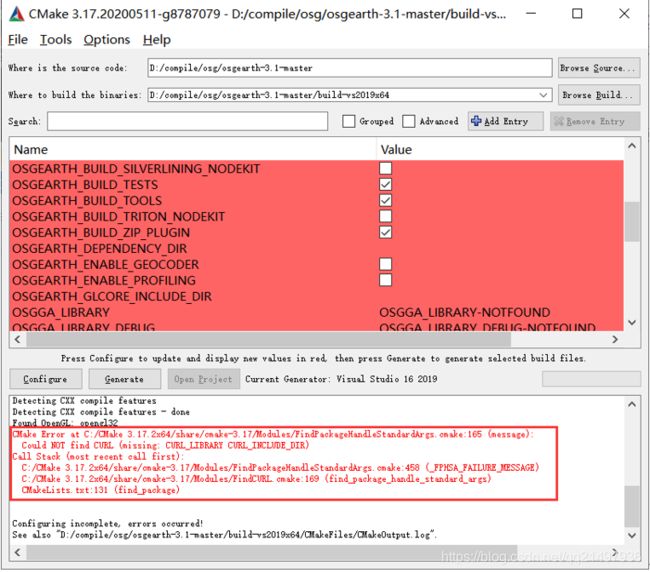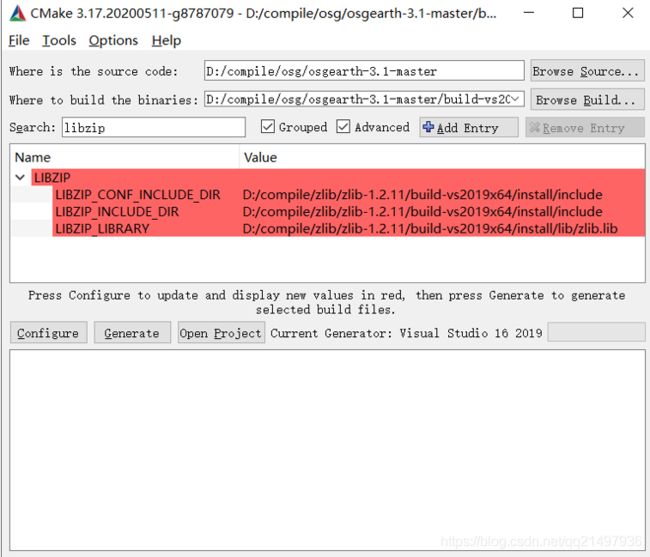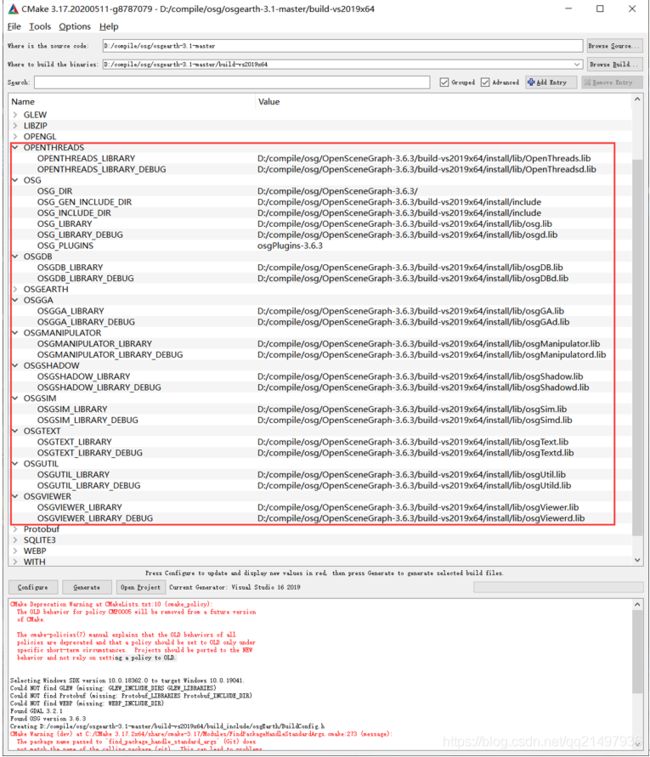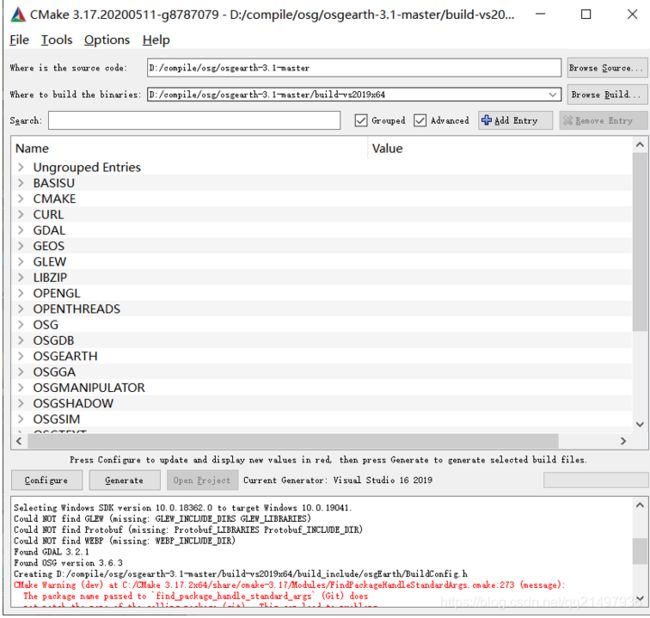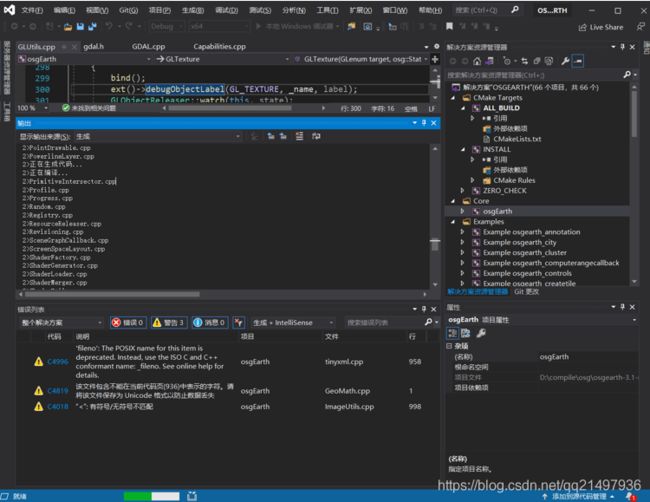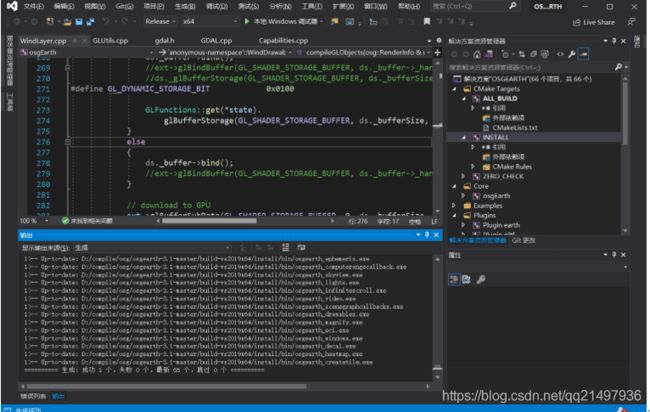- 入门网络安全工程师要学习哪些内容【2025年寒假最新学习计划】
白帽黑客2659
学习web安全安全网络安全密码学
基于入门网络安全/黑客打造的:黑客&网络安全入门&进阶学习资源包大家都知道网络安全行业很火,这个行业因为国家政策趋势正在大力发展,大有可为!但很多人对网络安全工程师还是不了解,不知道网络安全工程师需要学什么?知了堂小编总结出以下要点。网络安全工程师是一个概称,学习的东西很多,具体学什么看自己以后的职业定位。如果你以后想成为安全产品工程师,学的内容侧重点就和渗透测试工程师不一样,如果你想成为安全开发
- 事件驱动-事件驱动应用于软件开发
海水天涯
事件驱动驱动开发
一、前言1.1软件开发概述软件开发是一个涉及计算机科学、工程学、设计和项目管理等领域的广泛概念。它指的是创建、部署和维护软件应用程序或系统的整个过程。这包括从最初的构思和需求分析,到设计、编码、测试、部署,以及后续的维护和更新。在软件开发过程中,通常会遵循一定的方法论或开发模型,如瀑布模型、敏捷开发等,以确保项目能按时、按质完成。软件开发工具如集成开发环境(IDE)、版本控制系统等,也在这个过程中
- null和undefined的区别
编程星空
JavaScript前端javascript开发语言
null和undefined是JavaScript中两个特殊的值,它们都表示“无”或“空”,但在语义和使用场景上有明显区别。以下是它们的详细对比:1.定义undefined表示变量已声明但未赋值,或函数没有返回值时的默认返回值。是JavaScript引擎默认赋予的初始值。类型为undefined。null表示一个空对象指针,通常用于显式表示“无”或“空”。是开发者主动赋值的值。类型为object(
- 深入理解Spring Boot中的事件驱动架构
省赚客APP开发者@聚娃科技
springboot架构java
深入理解SpringBoot中的事件驱动架构大家好,我是微赚淘客系统3.0的小编,也是冬天不穿秋裤,天冷也要风度的程序猿!1.引言事件驱动架构在现代软件开发中越来越受欢迎,它能够提高系统的松耦合性和可扩展性。SpringBoot作为一个流行的Java框架,提供了强大的事件驱动支持。本文将深入探讨SpringBoot中事件驱动架构的实现原理和最佳实践。2.SpringFramework中的事件模型在
- JavaScript的魔法世界:巧妙之处与实战技巧
skyksksksksks
综合个人杂记javascript开发语言html5css前端
一、从浏览器玩具到全栈利器的蜕变之路JavaScript诞生于1995年,原本只是网景公司为浏览器设计的"小脚本"。谁能想到这个曾被戏称为"玩具语言"的家伙,如今已蜕变成支撑现代Web开发的擎天柱?就像一只破茧成蝶的幼虫,JavaScript经历了ECMAScript标准的持续进化,在Node.js的加持下突破了浏览器的桎梏,实现了从客户端到服务端的华丽转身。V8引擎的涡轮增压让它跑得比猎豹还快,
- XML的介绍及使用DOM,DOM4J解析xml文件
late summer182
xmljava
1XML简介XML(可扩展标记语言,ExtensibleMarkupLanguage)是一种用于定义文档结构和数据存储的标记语言。它主要用于在不同的系统之间传输和存储数据。作用:数据交互配置应用程序和网站Ajax基石特点XML与操作系统、编程语言的开发平台无关实现不同系统之间的数据交换2XML文档结构王珊.NET高级编程包含C#框架和网络编程等李明明XML基础编程包含XML基础概念和基本作用2.1
- Redis 全方位解析:从入门到实战
kiss strong
redis数据库缓存
引言在当今互联网快速发展的时代,高并发、低延迟的应用场景越来越普遍。Redis,作为一款高性能的开源数据库,以其卓越的性能和灵活的功能,成为了许多开发者的首选工具。无论是在缓存、消息队列,还是在实时数据分析等领域,Redis都展现出了强大的能力。本文将从Redis的基本介绍、官网、安装、特性,到具体的存储类型、Java代码实例、SpringBoot整合,以及Redis的主要作用和应用场景,进行全面
- 前端开发入门指南:HTML、CSS和JavaScript基础知识
方向感超强的
javascriptcsshtml前端
引言:大家好,我是一名简单的前端开发爱好者,对于网页设计和用户体验的追求让我深深着迷。在本篇文章中,我将带领大家探索前端开发的基础知识,涵盖HTML、CSS和JavaScript。如果你对这个领域感兴趣,或者想要了解如何开始学习前端开发,那么这篇文章将为你提供一个良好的起点。1.前端开发概述在我们深入了解前端开发的细节之前,让我们先了解一下前端开发的定义和作用。简而言之,前端开发涉及构建用户直接与
- Android与Flutter混合开发,超详细讲解
m0_64382743
程序员面试android移动开发
在跳转之前需要先在AndroidManifest.xml注册FlutterActivity。在需要跳转的时候,使用FlutterActivity.withNewEngine()进行跳转:startActivity(FlutterActivity.withNewEngine().initialRoute(“params”).build(xxxxActivity.this));其中initialRou
- 【产品小白】产品思维与技术思维的区别
百事不可口y
产品经理的一步一步产品经理用户运营内容运营学习人工智能大数据新媒体运营
一、两种思维的本质差异与互补性维度产品思维技术思维核心关注点用户价值(痛点/爽点)、商业目标(盈利/增长)技术实现(架构/性能)、系统稳定性(可用性/扩展性)决策依据用户行为数据、市场趋势、ROI模型技术复杂度、开发成本、技术债评估问题解决路径从场景出发,构建业务闭环(如“用户如何完成支付?”)从实现出发,拆解技术模块(如“支付接口如何鉴权?”)风险意识担心需求伪命题(无人使用)担忧系统崩溃(高并
- jQuery UI CSS 框架 API
lly202406
开发语言
jQueryUICSS框架API概述jQueryUI是一个基于jQuery的用户界面和交互库,它提供了一套丰富的交互组件和视觉效果,旨在帮助开发者快速构建具有吸引力和互动性的网页应用。jQueryUICSS框架API是jQueryUI的一部分,它允许开发者通过简单的CSS类来控制UI组件的样式和外观。本文将详细介绍jQueryUICSS框架API的使用方法、常用类和功能,帮助开发者更好地利用这一工
- 部署前端项目2
augenstern416
前端
前端项目的部署是将开发完成的前端代码发布到服务器或云平台,使其能够通过互联网访问。以下是前端项目部署的常见步骤和工具:1.准备工作在部署之前,确保项目已经完成以下步骤:代码优化:压缩JavaScript、CSS和图片文件,减少文件体积。环境配置:区分开发环境和生产环境(如API地址、环境变量等)。测试:确保项目在本地测试通过,没有明显Bug。2.部署流程1.构建项目大多数前端项目(如React、V
- 对象的操作
augenstern416
javascript开发语言ecmascript
在前端开发中,JavaScript提供了许多内置对象和方法,用于处理数据、操作DOM、处理事件等。以下是一些常用对象及其方法和扩展技巧:1.Object对象Object是JavaScript中最基础的对象,几乎所有对象都继承自Object。常用方法Object.keys(obj):返回对象的所有可枚举属性的键名数组。constobj={a:1,b:2};console.log(Object.key
- 微信小程序之自定义轮播图实例 —— 微信小程序实战系列(3)
2401_84910072
程序员微信小程序小程序
由于微信小程序,整个项目编译后的大小不能超过1M查看做轮播图功能的一张图片大小都已经有100+k了那么我们可以把图片放在服务器上,发送请求来获取。index.wxml:这里使用小程序提供的组件autoplay:自动播放interval:自动切换时间duration:滑动动画的时长current:当前所在的页面bindchange:current改变时会触发change事件由于组件提供的指示点样式比
- 前端基础入门:HTML、CSS 和 JavaScript
阿绵
前端前端htmlcssjs
在现代网页开发中,前端技术扮演着至关重要的角色。无论是个人网站、企业官网,还是复杂的Web应用程序,前端开发的基础技术HTML、CSS和JavaScript都是每个开发者必须掌握的核心技能。本文将详细介绍这三者的基本概念及其应用一、HTML——网页的骨架HTML(HyperTextMarkupLanguage)是构建网页的基础语言。它是网页的结构和内容的标记语言,决定了网页上的文本、图像、表单等元
- Jira,一个强大灵活的项目和任务管理工具 Python 库
图灵学者
python精华jirapython开发语言
目录01初识Jira为什么选择Jira?02安装与配置安装jira库配置Jira访问获取APItoken:配置Python环境:03基本操作创建项目创建任务查询任务更新任务删除任务04高级操作处理子任务搜索任务添加附件评论任务05实战案例自动化创建与分配任务自动生成项目报告06结语01初识JiraJira是Atlassian公司开发的一款项目和任务管理工具。它广泛应用于软件开发、IT支持、营销等各
- 定制Jira优先级图标以提升项目管理效率
tianjiaxiaoer
本文还有配套的精品资源,点击获取简介:Jira是软件开发团队中广泛使用的项目管理和问题追踪工具,其默认优先级图标可能不满足所有团队的需求。用户可以自定义优先级图标来更好地反映任务的紧急性和重要性。定制步骤包括访问系统设置、上传和关联新图标、调整显示设置以及通知团队成员。自定义图标有助于团队更有效地沟通和管理任务优先级,提升工作流程的效率。1.Jira在项目管理中的应用在现代企业中,有效管理项目对成
- 数据集 handpose_x_3d-wider_world V1 室外自然场景三维手势 >> DataBall
Xian-HHappy
DataBall数据集合(计算机视觉)-数据也可如此美好3d
数据集handpose数据集handpose_x_3d-wider_worldV1室外自然场景三维手势>>DataBall数据特点:*场景多样性*包括有无遮挡多样性*有无拿物体多样性数据标注信息包括:二维21关键点,三维21关键点,三维网格点,图像相机内参。想要进一步了解,请联系。DataBall助力快速掌握数据集的信息和使用方式,会员享有百种数据集,持续增加中。示例:助力快速掌握数据集的信息和使
- cmake linux模板 多目录_【转载】CMake 简介和 CMake 模板
weixin_39790738
cmakelinux模板多目录
如果你用Linux操作系统,使用cmake会简单很多,可以参考一个很好的教程:CMake入门实战|HaHack。如果你用Linux操作系统,而且只是运行一些小程序,可以看看我的另一篇博客:你就编译一个cpp,用CMake还不如用pkg-config呢。但如果你用Windows,很大的可能你会使用图形界面的CMake(cmake-gui.exe)和VisualStudio。本文先简单介绍使用CMak
- C/C++编译原理
weixin_33809981
转自:http://m.blog.csdn.net/blog/business122/21722039http://m.blog.csdn.net/blog/business122/21722151C/C++编译就是要将C/C++的代码映射到相应的机器码,以及讨论其中的内存管理模式,包括内存的分配,如何使用等等,整型、数组、指针等这些在内存中的实现机制。C/C++的编译包括几个部分,分别是编译,汇
- ws协议与http协议的异同_Socket、WebSocket 、HTTP 与 TCP有什么区别
雪言AR纯
ws协议与http协议的异同
0、为什么需要WebSocket?Browser已经支持http协议,为什么还要开发一种新的WebSocket协议呢?我们知道http协议是一种单向的网络协议,在建立连接后,它只允许Browser/UA(UserAgent)向WebServer发出请求资源后,WebServer才能返回相应的数据。而WebServer不能主动的推送数据给Browser/UA,当初这么设计http协议也是有原因的,假
- doris集群
warrah
岁月云——大数据杂烩doris
开发doris的团队厉害,这个百度工程师确实也干了一些实事,不像领导层只会跑火车。1参数配置1.1文件句柄数vim/etc/security/limits.conf*softnofile655350*hardnofile6553501.2关闭透明大页echonever>/sys/kernel/mm/transparent_hugepage/enabledechonever>/sys/kernel/
- 无需配置!深脑云一键启用DeepSeek全系AI模型
小深ai硬件分享
人工智能深度学习服务器
解锁无限算力潜能,开启DeepSeek镜像云算力新征程!在人工智能风起云涌的时代,算力就是驱动创新的引擎,而优质的模型镜像则是引领变革的密钥。我们向您介绍一下我们的深脑云算力平台,这里汇聚了DeepSeek的各大版本镜像,为您的科研、开发与创新之路注入强大动力!强大的DeepSeek模型家族DeepSeek,作为AI领域的璀璨明星,以其卓越的性能和先进的技术架构闻名遐迩。我们的平台精心整合了Dee
- FastGPT接入向量模型 M3E 和 重排模型 bge-reranker-large
福葫芦
M3EM3EFASTGPT
一、FastGPT接入向量模型M3E1.拉取m3e镜像#GPU模式启动,并把m3e加载到fastgpt同一个网络dockerpullregistry.cn-hangzhou.aliyuncs.com/fastgpt_docker/m3e-large-api2.查看镜像dockerimages可以按照有一个名称为registry.cn-hangzhou.aliyuncs.com/fastgpt_do
- C# 语法 vs. C++ 语法:全面对比与核心区别解析
不会编程的程序猿ᅟ
c#c++开发语言
引言C#和C++是两种广泛使用的编程语言,分别由微软和BjarneStroustrup开发。尽管它们都属于C语言家族,但在语法、特性和应用场景上存在显著差异。本文将从多个角度详细对比C#和C++的语法区别,帮助你更好地理解这两种语言的特点。一、语言设计目标1.C#设计目标:C#是一种现代化的、面向对象的编程语言,旨在简化开发过程,提高开发效率。主要应用:Windows应用、Web开发、游戏开发(U
- cmake 交叉编译
一条晓鱼
linuxubuntuc++
准备工作:交叉编译工具链安装确保交叉编译工具链已经正常安装验证.比如:arm-none-eabi-gcc-varm-none-eabi-gcc-vUsingbuilt-inspecs.COLLECT_GCC=arm-none-eabi-gccCOLLECT_LTO_WRAPPER=/home/jlh/gcc-arm-none-eabi-7-2018-q2-update/bin/../lib/gcc
- 【python】懒人福利,通过Python的JIRA库操作JIRA,自动批量提交关闭bug,提高效率
bulabula2022
#CI持续集成Pythonjira
简介:Jira是目前比较流行的基于Java架构的管理系统(Atlassian公司支持),有开源代码,方便做二次开发(可扩展性)。Jira是一款功能非常强大的管理工具,广泛的用来缺陷跟踪、用例管理、需求收集、任务跟踪、工时管理、项目计划管理等工作领域。python有支持操作Jira的第三方包,方便自定义一些自动化操作。需要安装jira库:pipinstalljiraJira认证fromjiraimp
- 小白入门笔记:CMake编译过程详解
3D视觉工坊
3D视觉从入门到精通笔记c++开发语言
作者丨SkyShaw@知乎点击进入—>3D视觉工坊学习交流群1、你好,CMake1.1CMake是什么?我觉得针对这个问题最简单(但不是最正确的)的回答应该是:“CMake是服务于将源代111码转换成可执行的文件的工具”。将源码转换为可工作应用会比较神奇。不仅是效果本身(即设计并赋予生命的工作机制),而且是将理念付诸于过程的行为本身。CMake本身是一个工具集,由五个可执行的程序组成:cmake、
- 在 DeepSeek 驱动的编程变革中抓住机遇并脱颖而出
智想天开
AI技术人工智能deeplearning
公众号地址:在DeepSeek驱动的编程变革中抓住机遇并脱颖而出更多内容请关注公众号:智想天开前言在DeepSeek引领的新一轮AI技术革新中,程序员们正面临着前所未有的挑战。随着DeepSeek等人工智能工具的迅猛发展,编程领域正在发生深刻变革。这些先进的工具不仅能够自动化完成繁重的代码生成和调试任务,还能够根据大量数据提供优化建议,改变了传统编程的工作流程。虽然这些技术为提高工作效率和解放开发
- JVM篇:内存分区及作用及各部分可能发生的异常
ashane1314
jvm
一、运行时数据区总览二、JVM内存分区及异常1.程序计数器(ProgramCounterRegister)作用:记录当前线程执行字节码的地址(行号),保证线程切换后能恢复到正确位置。特点:线程私有,唯一无内存溢出的区域。异常:无。由JVM规范严格管理,不会发生内存溢出。2.虚拟机栈(JavaVirtualMachineStack)作用:存储方法调用的栈帧(局部变量表、操作数栈、动态链接、方法出口等
- Dom
周华华
JavaScripthtml
<!DOCTYPE html PUBLIC "-//W3C//DTD XHTML 1.0 Transitional//EN" "http://www.w3.org/TR/xhtml1/DTD/xhtml1-transitional.dtd">
<html xmlns="http://www.w3.org/1999/xhtml&q
- 【Spark九十六】RDD API之combineByKey
bit1129
spark
1. combineByKey函数的运行机制
RDD提供了很多针对元素类型为(K,V)的API,这些API封装在PairRDDFunctions类中,通过Scala隐式转换使用。这些API实现上是借助于combineByKey实现的。combineByKey函数本身也是RDD开放给Spark开发人员使用的API之一
首先看一下combineByKey的方法说明:
- msyql设置密码报错:ERROR 1372 (HY000): 解决方法详解
daizj
mysql设置密码
MySql给用户设置权限同时指定访问密码时,会提示如下错误:
ERROR 1372 (HY000): Password hash should be a 41-digit hexadecimal number;
问题原因:你输入的密码是明文。不允许这么输入。
解决办法:用select password('你想输入的密码');查询出你的密码对应的字符串,
然后
- 路漫漫其修远兮 吾将上下而求索
周凡杨
学习 思索
王国维在他的《人间词话》中曾经概括了为学的三种境界古今之成大事业、大学问者,罔不经过三种之境界。“昨夜西风凋碧树。独上高楼,望尽天涯路。”此第一境界也。“衣带渐宽终不悔,为伊消得人憔悴。”此第二境界也。“众里寻他千百度,蓦然回首,那人却在灯火阑珊处。”此第三境界也。学习技术,这也是你必须经历的三种境界。第一层境界是说,学习的路是漫漫的,你必须做好充分的思想准备,如果半途而废还不如不要开始。这里,注
- Hadoop(二)对话单的操作
朱辉辉33
hadoop
Debug:
1、
A = LOAD '/user/hue/task.txt' USING PigStorage(' ')
AS (col1,col2,col3);
DUMP A;
//输出结果前几行示例:
(>ggsnPDPRecord(21),,)
(-->recordType(0),,)
(-->networkInitiation(1),,)
- web报表工具FineReport常用函数的用法总结(日期和时间函数)
老A不折腾
finereport报表工具web开发
web报表工具FineReport常用函数的用法总结(日期和时间函数)
说明:凡函数中以日期作为参数因子的,其中日期的形式都必须是yy/mm/dd。而且必须用英文环境下双引号(" ")引用。
DATE
DATE(year,month,day):返回一个表示某一特定日期的系列数。
Year:代表年,可为一到四位数。
Month:代表月份。
- c++ 宏定义中的##操作符
墙头上一根草
C++
#与##在宏定义中的--宏展开 #include <stdio.h> #define f(a,b) a##b #define g(a) #a #define h(a) g(a) int main() { &nbs
- 分析Spring源代码之,DI的实现
aijuans
springDI现源代码
(转)
分析Spring源代码之,DI的实现
2012/1/3 by tony
接着上次的讲,以下这个sample
[java]
view plain
copy
print
- for循环的进化
alxw4616
JavaScript
// for循环的进化
// 菜鸟
for (var i = 0; i < Things.length ; i++) {
// Things[i]
}
// 老鸟
for (var i = 0, len = Things.length; i < len; i++) {
// Things[i]
}
// 大师
for (var i = Things.le
- 网络编程Socket和ServerSocket简单的使用
百合不是茶
网络编程基础IP地址端口
网络编程;TCP/IP协议
网络:实现计算机之间的信息共享,数据资源的交换
协议:数据交换需要遵守的一种协议,按照约定的数据格式等写出去
端口:用于计算机之间的通信
每运行一个程序,系统会分配一个编号给该程序,作为和外界交换数据的唯一标识
0~65535
查看被使用的
- JDK1.5 生产消费者
bijian1013
javathread生产消费者java多线程
ArrayBlockingQueue:
一个由数组支持的有界阻塞队列。此队列按 FIFO(先进先出)原则对元素进行排序。队列的头部 是在队列中存在时间最长的元素。队列的尾部 是在队列中存在时间最短的元素。新元素插入到队列的尾部,队列检索操作则是从队列头部开始获得元素。
ArrayBlockingQueue的常用方法:
- JAVA版身份证获取性别、出生日期及年龄
bijian1013
java性别出生日期年龄
工作中需要根据身份证获取性别、出生日期及年龄,且要还要支持15位长度的身份证号码,网上搜索了一下,经过测试好像多少存在点问题,干脆自已写一个。
CertificateNo.java
package com.bijian.study;
import java.util.Calendar;
import
- 【Java范型六】范型与枚举
bit1129
java
首先,枚举类型的定义不能带有类型参数,所以,不能把枚举类型定义为范型枚举类,例如下面的枚举类定义是有编译错的
public enum EnumGenerics<T> { //编译错,提示枚举不能带有范型参数
OK, ERROR;
public <T> T get(T type) {
return null;
- 【Nginx五】Nginx常用日志格式含义
bit1129
nginx
1. log_format
1.1 log_format指令用于指定日志的格式,格式:
log_format name(格式名称) type(格式样式)
1.2 如下是一个常用的Nginx日志格式:
log_format main '[$time_local]|$request_time|$status|$body_bytes
- Lua 语言 15 分钟快速入门
ronin47
lua 基础
-
-
单行注释
-
-
[[
[多行注释]
-
-
]]
-
-
-
-
-
-
-
-
-
-
-
1.
变量 & 控制流
-
-
-
-
-
-
-
-
-
-
num
=
23
-
-
数字都是双精度
str
=
'aspythonstring'
- java-35.求一个矩阵中最大的二维矩阵 ( 元素和最大 )
bylijinnan
java
the idea is from:
http://blog.csdn.net/zhanxinhang/article/details/6731134
public class MaxSubMatrix {
/**see http://blog.csdn.net/zhanxinhang/article/details/6731134
* Q35
求一个矩阵中最大的二维
- mongoDB文档型数据库特点
开窍的石头
mongoDB文档型数据库特点
MongoDD: 文档型数据库存储的是Bson文档-->json的二进制
特点:内部是执行引擎是js解释器,把文档转成Bson结构,在查询时转换成js对象。
mongoDB传统型数据库对比
传统类型数据库:结构化数据,定好了表结构后每一个内容符合表结构的。也就是说每一行每一列的数据都是一样的
文档型数据库:不用定好数据结构,
- [毕业季节]欢迎广大毕业生加入JAVA程序员的行列
comsci
java
一年一度的毕业季来临了。。。。。。。。
正在投简历的学弟学妹们。。。如果觉得学校推荐的单位和公司不适合自己的兴趣和专业,可以考虑来我们软件行业,做一名职业程序员。。。
软件行业的开发工具中,对初学者最友好的就是JAVA语言了,网络上不仅仅有大量的
- PHP操作Excel – PHPExcel 基本用法详解
cuiyadll
PHPExcel
导出excel属性设置//Include classrequire_once('Classes/PHPExcel.php');require_once('Classes/PHPExcel/Writer/Excel2007.php');$objPHPExcel = new PHPExcel();//Set properties 设置文件属性$objPHPExcel->getProperties
- IBM Webshpere MQ Client User Issue (MCAUSER)
darrenzhu
IBMjmsuserMQMCAUSER
IBM MQ JMS Client去连接远端MQ Server的时候,需要提供User和Password吗?
答案是根据情况而定,取决于所定义的Channel里面的属性Message channel agent user identifier (MCAUSER)的设置。
http://stackoverflow.com/questions/20209429/how-mca-user-i
- 网线的接法
dcj3sjt126com
一、PC连HUB (直连线)A端:(标准568B):白橙,橙,白绿,蓝,白蓝,绿,白棕,棕。 B端:(标准568B):白橙,橙,白绿,蓝,白蓝,绿,白棕,棕。 二、PC连PC (交叉线)A端:(568A): 白绿,绿,白橙,蓝,白蓝,橙,白棕,棕; B端:(标准568B):白橙,橙,白绿,蓝,白蓝,绿,白棕,棕。 三、HUB连HUB&nb
- Vimium插件让键盘党像操作Vim一样操作Chrome
dcj3sjt126com
chromevim
什么是键盘党?
键盘党是指尽可能将所有电脑操作用键盘来完成,而不去动鼠标的人。鼠标应该说是新手们的最爱,很直观,指哪点哪,很听话!不过常常使用电脑的人,如果一直使用鼠标的话,手会发酸,因为操作鼠标的时候,手臂不是在一个自然的状态,臂肌会处于绷紧状态。而使用键盘则双手是放松状态,只有手指在动。而且尽量少的从鼠标移动到键盘来回操作,也省不少事。
在chrome里安装 vimium 插件
- MongoDB查询(2)——数组查询[六]
eksliang
mongodbMongoDB查询数组
MongoDB查询数组
转载请出自出处:http://eksliang.iteye.com/blog/2177292 一、概述
MongoDB查询数组与查询标量值是一样的,例如,有一个水果列表,如下所示:
> db.food.find()
{ "_id" : "001", "fruits" : [ "苹
- cordova读写文件(1)
gundumw100
JavaScriptCordova
使用cordova可以很方便的在手机sdcard中读写文件。
首先需要安装cordova插件:file
命令为:
cordova plugin add org.apache.cordova.file
然后就可以读写文件了,这里我先是写入一个文件,具体的JS代码为:
var datas=null;//datas need write
var directory=&
- HTML5 FormData 进行文件jquery ajax 上传 到又拍云
ileson
jqueryAjaxhtml5FormData
html5 新东西:FormData 可以提交二进制数据。
页面test.html
<!DOCTYPE>
<html>
<head>
<title> formdata file jquery ajax upload</title>
</head>
<body>
<
- swift appearanceWhenContainedIn:(version1.2 xcode6.4)
啸笑天
version
swift1.2中没有oc中对应的方法:
+ (instancetype)appearanceWhenContainedIn:(Class <UIAppearanceContainer>)ContainerClass, ... NS_REQUIRES_NIL_TERMINATION;
解决方法:
在swift项目中新建oc类如下:
#import &
- java实现SMTP邮件服务器
macroli
java编程
电子邮件传递可以由多种协议来实现。目前,在Internet 网上最流行的三种电子邮件协议是SMTP、POP3 和 IMAP,下面分别简单介绍。
◆ SMTP 协议
简单邮件传输协议(Simple Mail Transfer Protocol,SMTP)是一个运行在TCP/IP之上的协议,用它发送和接收电子邮件。SMTP 服务器在默认端口25上监听。SMTP客户使用一组简单的、基于文本的
- mongodb group by having where 查询sql
qiaolevip
每天进步一点点学习永无止境mongo纵观千象
SELECT cust_id,
SUM(price) as total
FROM orders
WHERE status = 'A'
GROUP BY cust_id
HAVING total > 250
db.orders.aggregate( [
{ $match: { status: 'A' } },
{
$group: {
- Struts2 Pojo(六)
Luob.
POJOstrust2
注意:附件中有完整案例
1.采用POJO对象的方法进行赋值和传值
2.web配置
<?xml version="1.0" encoding="UTF-8"?>
<web-app version="2.5"
xmlns="http://java.sun.com/xml/ns/javaee&q
- struts2步骤
wuai
struts
1、添加jar包
2、在web.xml中配置过滤器
<filter>
<filter-name>struts2</filter-name>
<filter-class>org.apache.st


